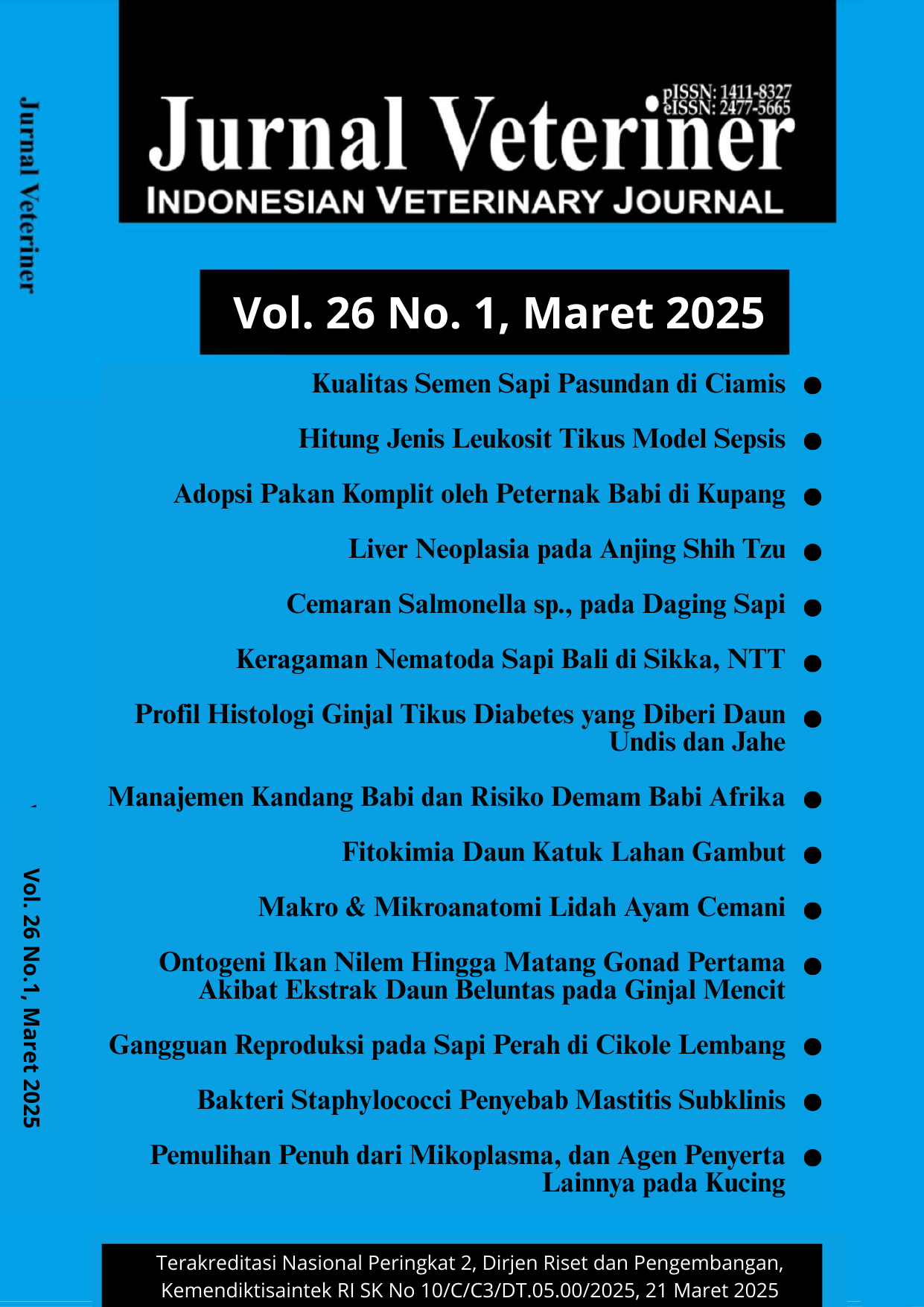The The Relationship Between Slaughterhouse Officers' Knowledge, Attitudes and Salmonella sp. Contamination of Beef in Slaughterhouses of Jember Regency
Abstract
Beef is a primary source of animal protein widely consumed by the Indonesian population. Beef consumption must be supported by maintaining its quality and safety, especially during the slaughtering process at slaughterhouses. Salmonella sp., a bacterial contaminant, can cause diseases such as typhoid fever. The Indonesian National Standard stipulates that beef must be free from Salmonella sp., contamination. Bacterial contamination is often caused by slaughterhouse personnel's non-compliance with Standard Operating Procedures (SOP), closely related to their knowledge and attitudes. This study was aimed to analyze the relationship between the knowledge and attitudes of slaughterhouse personnel regarding Salmonella sp., and beef contamination at slaughterhouses in Jember Regency, East Java Province. Using an analytical observational design, the study involved slaughterhouse personnel and beef samples. Data analysis was conducted using Fisher's exact test. The results showed a p-value of 0.417 for the relationship between knowledge and contamination and a p-value of 1 for the relationship between attitudes and contamination. No significant relationship was found between the knowledge or attitudes of slaughterhouse personnel and beef contamination by Salmonella sp.



















